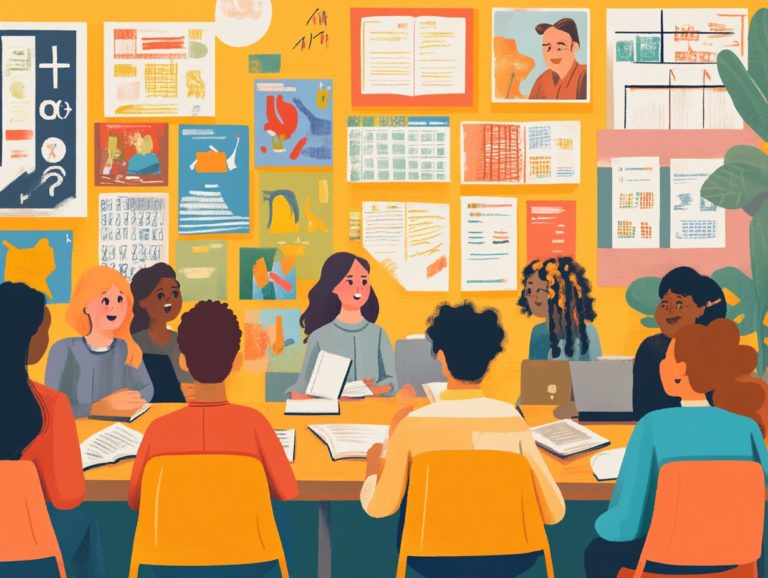The Benefits of Learning Languages at a Young Age
Learning languages at a young age unlocks a treasure trove of opportunities for you, shaping your thinking skills and enhancing your social skills in ways you might not even realize.
This article delves into the compelling reasons for starting your language journey early. You ll discover the impressive brain development and problem-solving skills that come with being bilingual, along with the cultural awareness and communication prowess it nurtures.
We ll also cover practical advantages, such as career benefits and travel opportunities, while presenting effective strategies to inspire language learning in children.
Get ready to discover the multifaceted benefits of bilingualism in early childhood and see how it can transform lives.
Contents
- Key Takeaways:
- The Importance of Learning Languages at a Young Age
- Cognitive Benefits of Learning Languages
- Social and Cultural Benefits
- Practical Benefits
- How to Encourage Language Learning in Children
- Frequently Asked Questions
- 1. What are the benefits of learning languages at a young age?
- 2. How does learning languages at a young age improve thinking skills?
- 3. Does learning languages at a young age improve cultural understanding?
- 4. How does learning languages at a young age enhance communication skills?
- 5. Are there any long-term benefits of learning languages at a young age?
- 6. What is the best age to start learning languages?
- 1. What are the benefits of learning languages at a young age?
- 2. How does learning languages improve cognitive abilities?
- 3. Does learning languages improve cultural understanding?
- 4. How does it enhance communication skills?
- 5. Are there long-term benefits of early language learning?
Key Takeaways:
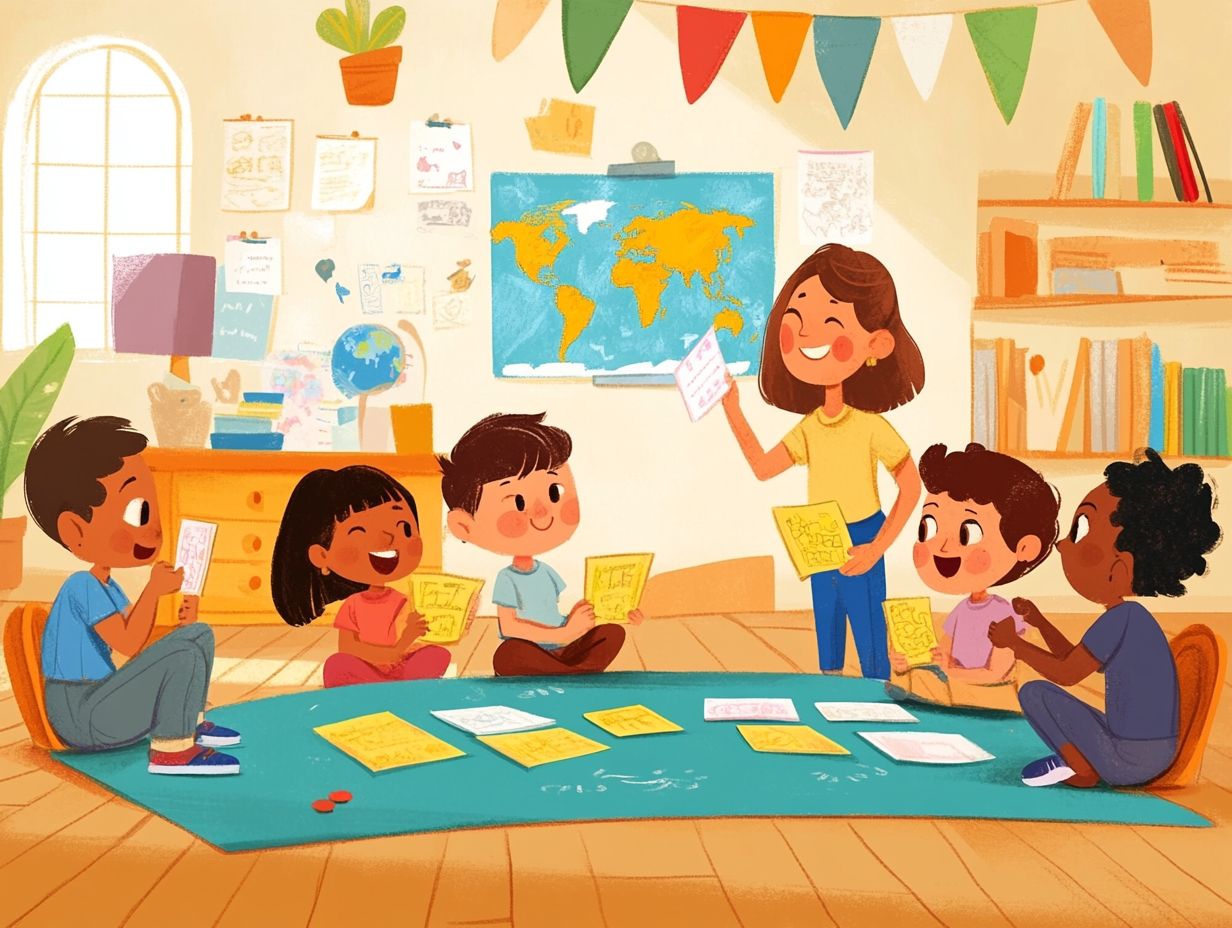
Starting language learning early boosts brain skills and opens up exciting career and travel opportunities!
The Importance of Learning Languages at a Young Age
Learning languages early in life is crucial for your child’s cognitive and social development, opening doors that can profoundly enhance their educational journey.
Research shows that early exposure to a foreign language not only bolsters linguistic skills but also nurtures confidence and cultural awareness. These competencies are vital in our interconnected world and can significantly prepare your child for academic success.
At Montessori Academy, as your child embarks on the adventure of learning a new language, they’ll engage in enriched interactions that promote effective communication and a deeper understanding of diverse cultures.
Why Start Early?
Starting language learning at an early age gives you the power to cultivate essential skills that enhance thinking skills and deepen cultural understanding, setting you on a rewarding journey toward bilingualism and better communication skills.
Research indicates that young learners possess a remarkable capacity for absorbing new languages. Techniques like immersion programs, interactive play, and storytelling not only make language acquisition enjoyable but also help reinforce these skills.
Incorporating songs, games, and even simple conversations into daily routines can effectively stimulate linguistic growth. By fostering a rich linguistic environment, you enable children to establish a solid foundation that enhances their academic performance and social interactions throughout their lives.
Cognitive Benefits of Learning Languages
The cognitive benefits of learning languages are truly remarkable. Research suggests that bilingualism significantly enhances mental agility, improves memory retention, and sharpens problem-solving skills, especially in young children.
Embracing a second language can unlock a wealth of advantages that extend far beyond mere communication.
Enhanced Brain Development
Bilingual kids often have better memory and can think more flexibly, making learning easier and more fun! Research highlights that bilingual children show improved abilities to manage tasks and focus attention.
A study published in the journal *Cognitive Science* found that bilingual children outperformed their monolingual peers in tasks that required manipulation of information and adaptation to new rules.
This linguistic diversity strengthens neural pathways in the brain, creating a fertile environment for cognitive growth. The increased mental exercise from switching between languages enhances working memory, enabling these children to process and retain information more effectively, ultimately leading to long-term academic and life advantages.
Improved Problem-Solving Skills
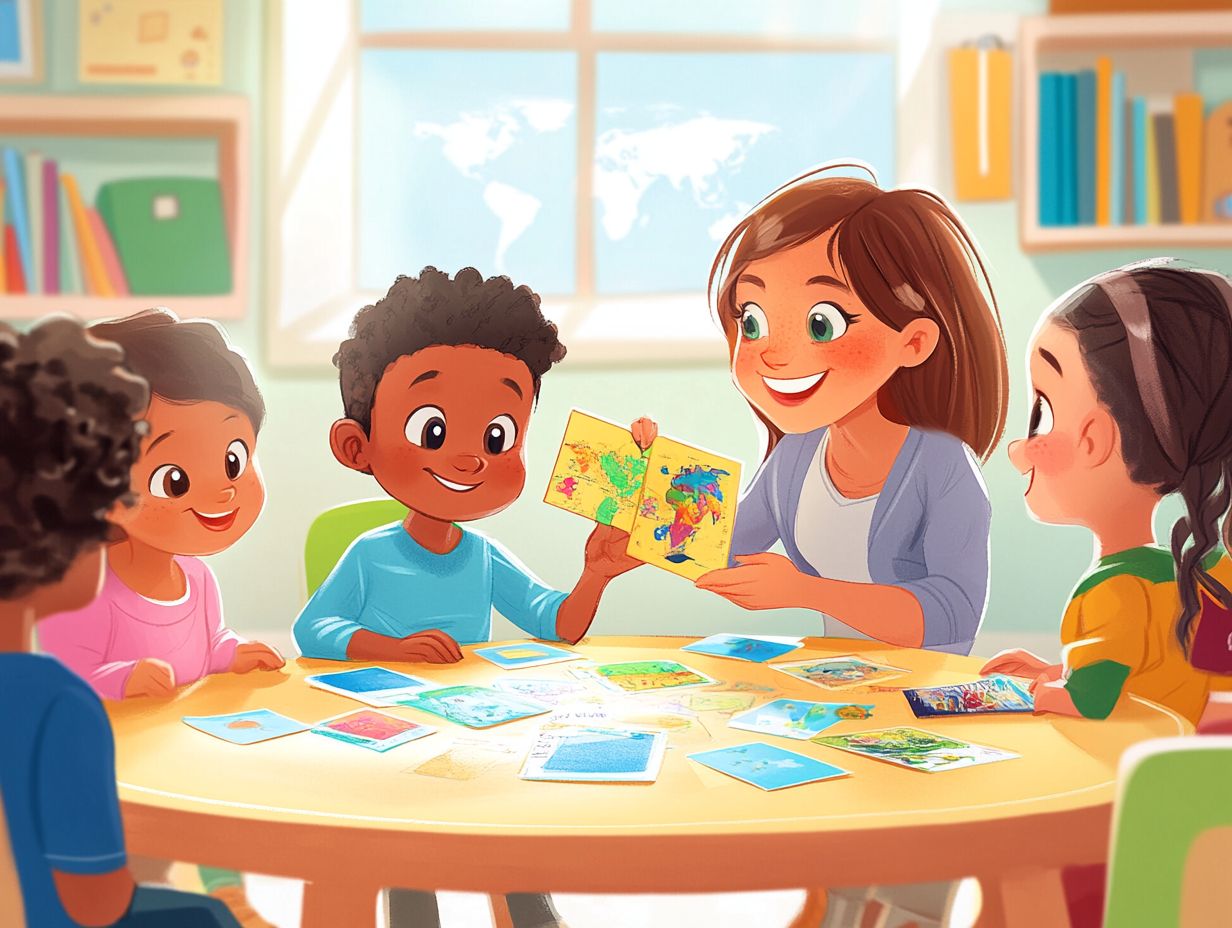
Learning a second language can significantly sharpen your problem-solving skills. Studies show that bilingual children exhibit enhanced analytical abilities compared to monolingual peers.
This advantage comes from the mental effort needed to learn complex grammar and vocabulary in another language. Research by the American Psychological Association reveals that bilingual individuals often use superior critical thinking skills, allowing them to tackle challenges from different angles.
Navigating different linguistic structures also nurtures creativity, encouraging you to discover innovative solutions.
In a 2012 study published in the journal *Cognition*, researchers found that bilingualism fosters flexible thinking, meaning you can switch between tasks more efficiently.
These findings highlight the profound impact that learning a new language can have on cognitive abilities, reaching far beyond mere communication.
Social and Cultural Benefits
The social and cultural benefits of learning languages are extensive. They enhance not just communication skills but also cultivate a deeper appreciation for diverse cultures among young learners.
Increased Cultural Awareness
Increased cultural awareness is one of the greatest advantages of learning a new language. It opens the door to understanding and appreciating diverse perspectives.
This deeper insight into various ways of living allows you to engage more thoughtfully with individuals from different backgrounds.
For instance, when you learn Spanish, you gain the ability to communicate with millions of speakers worldwide. You also tap into a rich tapestry of cultural traditions, literature, and values unique to those communities.
Such experiences often foster empathy, prompting you to reflect on your assumptions and biases, leading to more meaningful interactions.
Bilingual individuals develop heightened sensitivity to social nuances, making them more skilled at navigating multicultural environments.
Better Communication Skills
Acquiring a second language significantly enhances your communication skills. It enables you to express yourself effectively and understand others with greater clarity.
Research shows that bilingual individuals develop superior listening abilities as they navigate the nuances of different linguistic structures. This constant switching sharpens cognitive flexibility, meaning you can think about things in different ways. It also heightens your awareness of non-verbal cues, such as body language and facial expressions.
For instance, a study published in *Cognition* reveals that bilingual children excel in interpreting social cues during group interactions. Their capacity for empathy often flourishes as they learn to appreciate diverse perspectives from an early age. This improved understanding enriches their social experiences, fostering stronger interpersonal connections.
Practical Benefits
The practical benefits of learning a second language are substantial. They offer you significant career advantages and enrich your travel experiences.
In today s global economy, being bilingual is not just an asset; it s a highly valuable skill that can open doors and broaden horizons.
Career Advantages
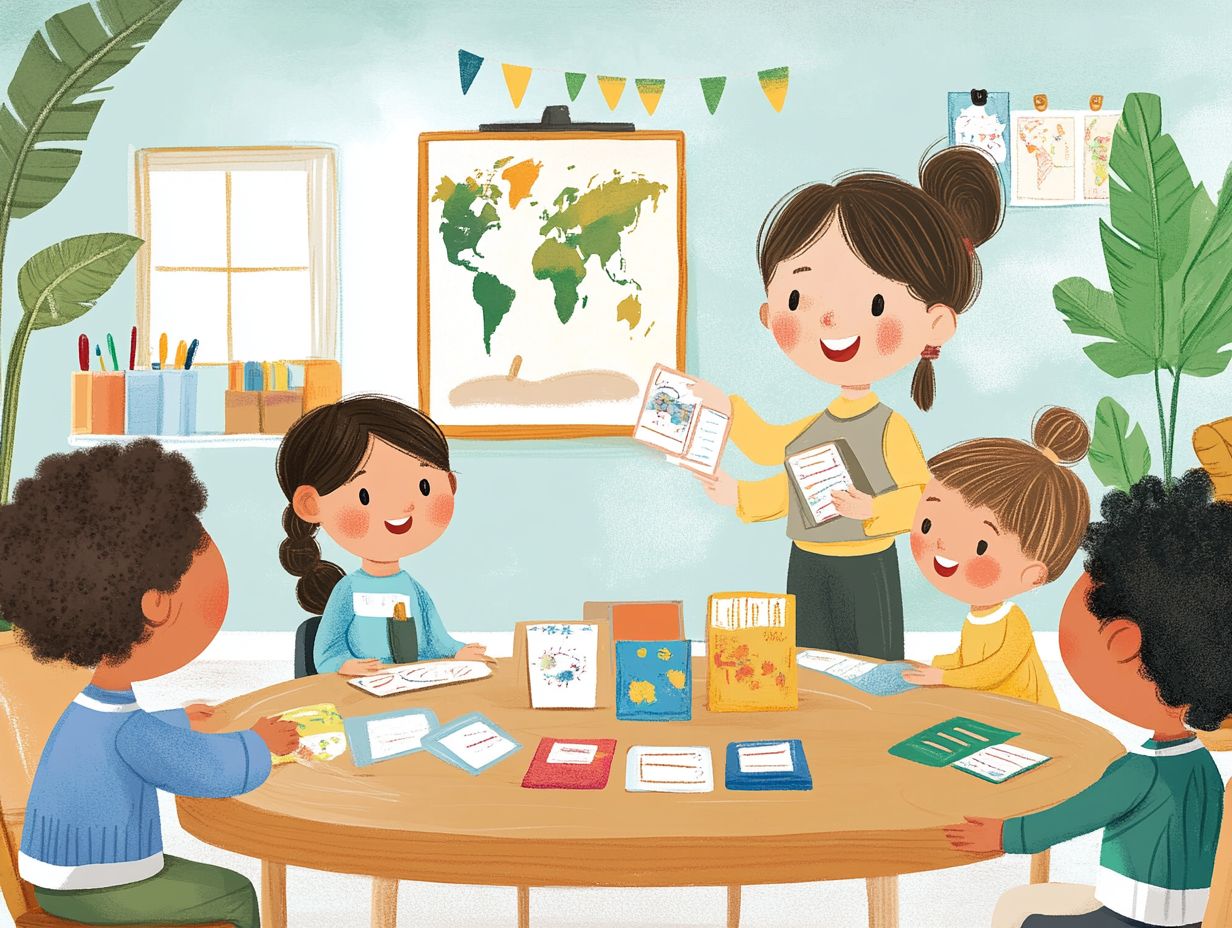
Bilingual individuals often find themselves at a distinct advantage in their careers. They enjoy access to a broader spectrum of job opportunities and the ability to engage with diverse client bases.
This linguistic proficiency enables you to thrive in dynamic industries such as international business, healthcare, and education, where interactions with various cultures are part of daily life.
In international business, your ability to negotiate and cultivate relationships in multiple languages can lead to successful deals and partnerships that monolingual professionals may find challenging to establish.
In the healthcare sector, your bilingual skills allow you to serve patients more effectively. This breaks down communication barriers and enhances overall outcomes.
These capabilities not only boost your employability but also position you for leadership roles, as organizations increasingly value inclusivity and effective communication in today s global marketplace.
Don t miss out on the incredible benefits that learning a new language can bring! Start learning a new language today to unlock these amazing advantages!
Travel Opportunities
Learning a new language can significantly elevate your travel experiences. It enables you to connect more profoundly with local cultures and communities during your journeys.
Picture yourself wandering through the vibrant streets of Barcelona. A simple greeting in Spanish could ignite warm conversations with the locals. This small gesture opens the door to genuine experiences like savoring homemade tapas in a family-owned restaurant and paves the way for friendships that transcend linguistic boundaries.
When you embrace language as a powerful tool, you often find yourself welcomed into local festivals or gatherings. These cherished memories might otherwise remain elusive. Ultimately, these skills enrich your personal experiences and cultivate a deeper understanding and appreciation of the diverse cultures that shape our world.
How to Encourage Language Learning in Children
Encouraging children to learn a new language demands effective teaching techniques and consistent exposure to the target language.
By fostering an engaging and stimulating environment, you can ensure that their learning experience is both enjoyable and rewarding.
Effective Strategies and Resources
Implementing effective strategies and utilizing diverse resources for language learning can significantly enhance children’s engagement and retention of new skills.
By integrating engaging apps like Duolingo and interactive games such as Scrabble and Boggle into their daily routines, you can help create a vibrant, language-rich environment.
Classroom activities like storytelling circles and role-playing games ignite creativity and foster teamwork and communication among peers.
Incorporating these resources into the curriculum allows children to practice language skills in a fun and meaningful context, bridging the gap between school learning and home experiences.
This fun approach sparks a love for language while equipping children with essential skills for future success.
Frequently Asked Questions
1. What are the benefits of learning languages at a young age?
Learning languages at a young age has several benefits, including improved thinking skills, better cultural understanding, enhanced communication skills, and increased job opportunities in the future.
2. How does learning languages at a young age improve thinking skills?
Language learning at a young age can improve thinking skills such as memory, problem-solving, and critical thinking. It also enhances the brain’s ability to multitask, meaning to handle more than one task at the same time, and increases overall intelligence.
3. Does learning languages at a young age improve cultural understanding?
Yes, learning languages at a young age allows children to develop a deeper understanding and appreciation for different cultures. It promotes open-mindedness and empathy towards others.
4. How does learning languages at a young age enhance communication skills?
Learning languages at a young age helps children develop strong communication skills, including listening, speaking, reading, and writing. This can lead to better communication and social skills in all areas of life.
5. Are there any long-term benefits of learning languages at a young age?
Yes, there are many long-term benefits of learning languages at a young age. It can lead to better job opportunities, higher salaries, and the ability to connect with people from different backgrounds in the future.
Ready to start your language learning journey? The world awaits!
6. What is the best age to start learning languages?
The best age to start learning languages is during early childhood (3-7 years old). Children at this age can absorb new languages quickly and easily.
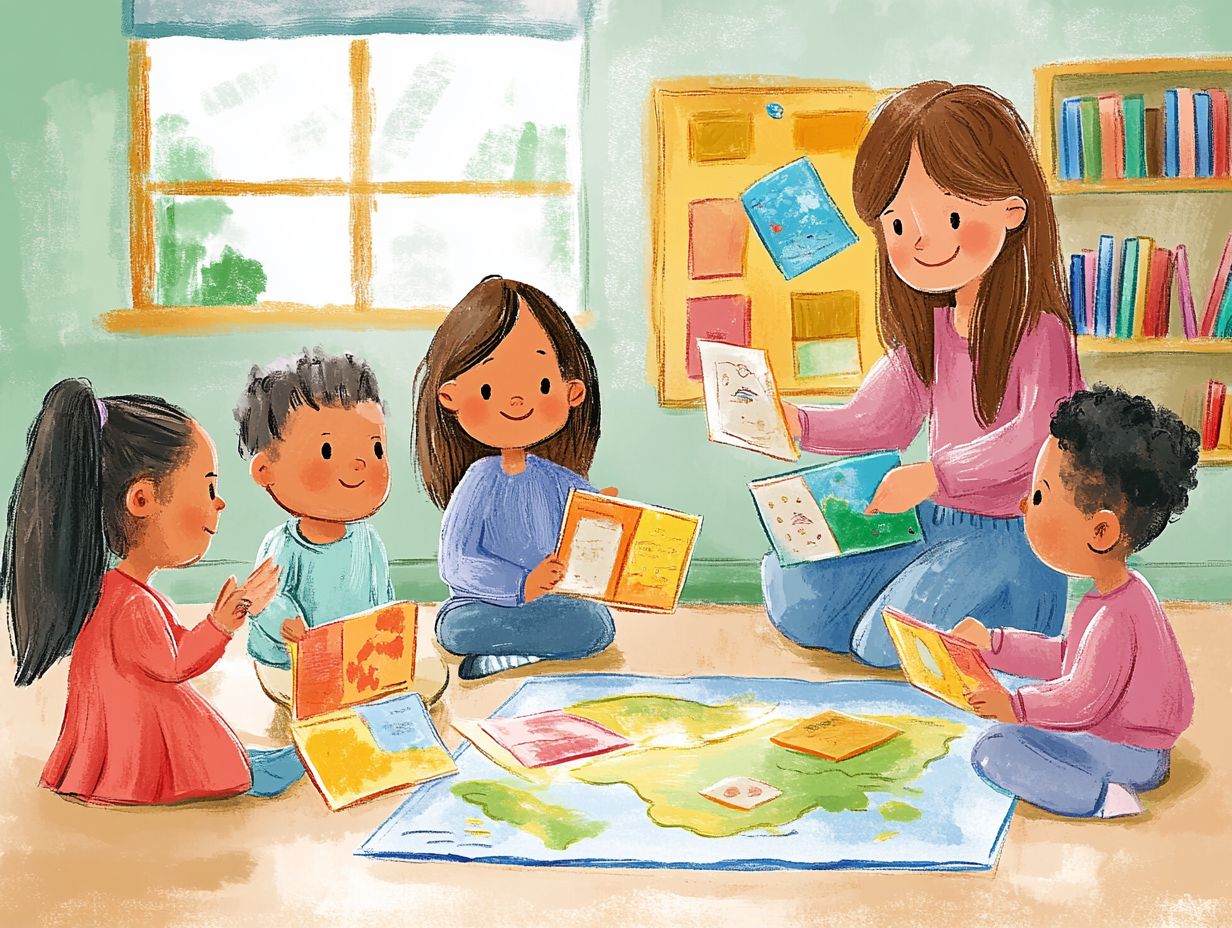
1. What are the benefits of learning languages at a young age?
Learning languages young offers many benefits. These include improved thinking skills, better understanding of cultures, enhanced skills in talking and writing, and increased job opportunities.
2. How does learning languages improve cognitive abilities?
Language learning boosts memory, problem-solving, and thinking skills. It also helps the brain multitask and increases intelligence.
3. Does learning languages improve cultural understanding?
Yes! Learning languages fosters appreciation for different cultures. It encourages open-mindedness and empathy.
4. How does it enhance communication skills?
Young learners develop strong skills in listening, speaking, reading, and writing. This leads to better interactions in all areas of life.
5. Are there long-term benefits of early language learning?
Absolutely! Early language learning can lead to better job prospects and higher salaries. It also helps connect with diverse people in the future.




